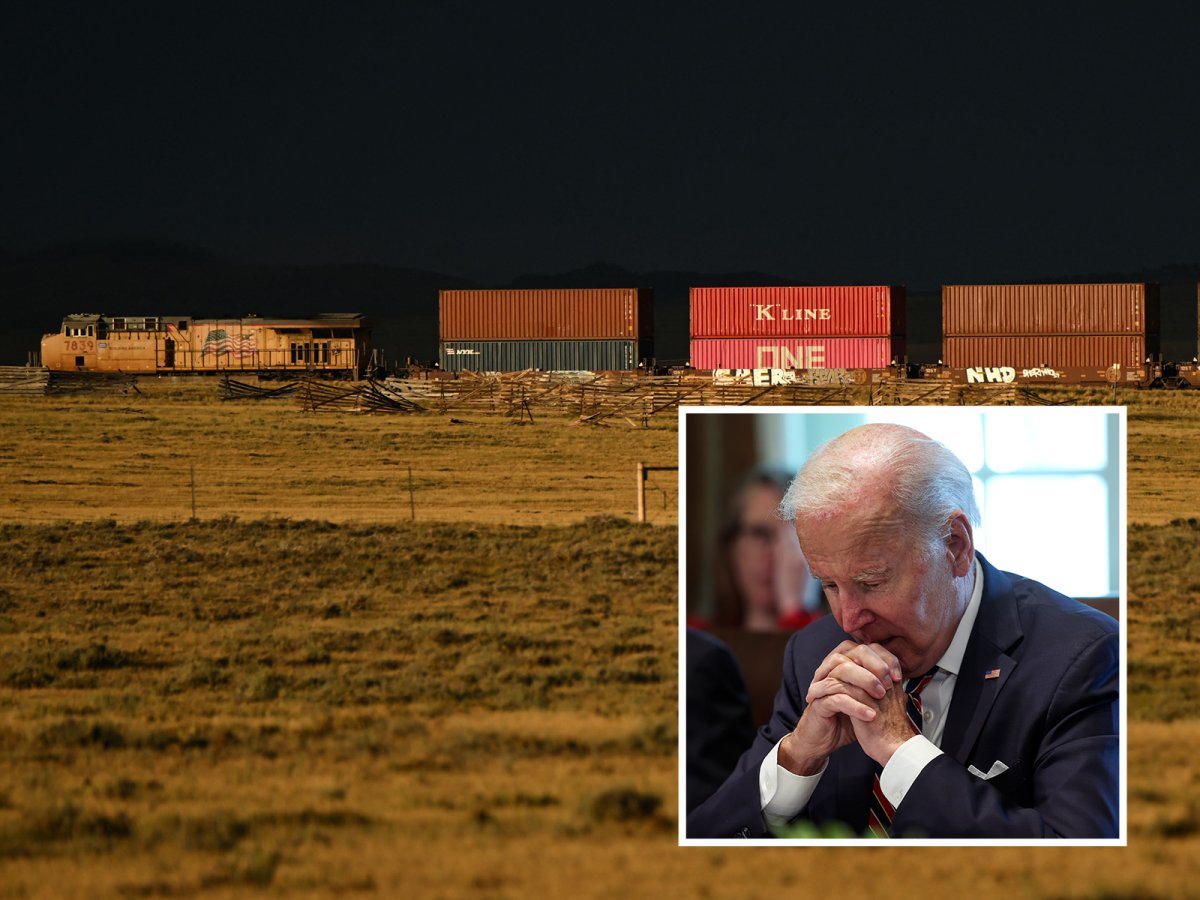Railroad workers are formally preparing to strike as the Biden administration races to mediate a deal between their unions and the railroad industry ahead of a rapidly approaching Friday deadline to finalize a new contract.
In Illinois, railroad employee David Manning told Newsmax Tuesday that viewers can "fully expect" the state's railroad workers to go on strike Friday, citing long hours and a lack of time allowed off with their families.
"This is our time to strike," Manning told the outlet. "If we're not allowed to fight now, we'll never be allowed to fight again."
In Nebraska, union members with the Lincoln-based lodge of the International Association of Machinists and Aerospace Workers formally voted to reject an agreement with the railroads, setting the stage for their workers to join the picket line should an agreement fail to arrive by month's end.
On railroader Facebook groups, dozens of others posted plans to strike locally—some sharing pictures of signs they had made and old photos of their family members participating in similar strikes in the early 1990s.

And in Wyoming, more than a dozen railroaders gathered in a Rawlins union hall Tuesday night to paint signs and strategize where their members were legally allowed to picket should the union fail to ratify an agreement with the railroads by the Friday deadline.
"They're getting ready," Stan Blake, a retired railroader and former director of the Wyoming chapter of the International Association of Sheet Metal, Air, Rail and Transportation Workers (SMART), told Newsweek Wednesday morning. "They've got their signs ready. There were probably 15 people at the meeting. They generally only have five or six. But people want to know what to do when the strike is called."
White House officials and railroads have been rushing to broker a deal with the unions for weeks, with concessions including revised scheduling practices and substantial pay increases in what railroad employees say would be their first real pay raise in eight years.
However, railroads have so far kept provisions like increased time off and guarantees for increased staffing on freight routes off the table—concessions union leaders say are necessary to move forward with negotiations.
Though negotiations have continued, the railroads themselves are also steeling themselves for a work stoppage. Union members and other media outlets reported that some rail companies are preparing to hold shipments from leaving major rail hubs in anticipation of a strike.
And on Wednesday morning, officials with BNSF—one of the nation's largest rail companies—sent letters to congressional offices urging them to support a joint resolution backed by North Carolina Senator Richard M. Burr and Missississippi Senator Roger Wicker requiring unions and freight railroads to accept the recommendations of a presidential emergency board established to avert a strike or lockout, citing the likely financial devastation that could result from a national rail stoppage.
Labor groups working without a contract for three years, however, have asked for Congress not to intervene in the negotiations, accusing the railroads of weaponizing the nation's supply chains to force the unions to concede.
On Tuesday, Illinois Senator Richard Durbin, the second-highest ranking member of Democratic leadership, told CNN that Democrats are likely to avoid interfering in negotiations between the unions and the industry.
"I don't think it's likely we will intervene," Durbin said. Avoiding a strike "depends on the parties in negotiations stepping up to the plate."
History has shown that Congress is willing to take that step. A similar national railroad strike in 1992 came to a swift close after Congress saw the scale of economic devastation that resulted in the short period of workers walking off the job, ultimately ruling in favor of the railroads.
However, Biden, who stated aspirations of being the most union-friendly president in history, is under significant pressure to demonstrate that commitment in the coming days.
"We've been without a contract for three years," Blake said. "Quality of life, those are the key issues that are never addressed. That's what they're fighting for."
Uncommon Knowledge
Newsweek is committed to challenging conventional wisdom and finding connections in the search for common ground.
Newsweek is committed to challenging conventional wisdom and finding connections in the search for common ground.
About the writer
Nick Reynolds is a senior politics reporter at Newsweek. A native of Central New York, he previously worked as a ... Read more
To read how Newsweek uses AI as a newsroom tool, Click here.








